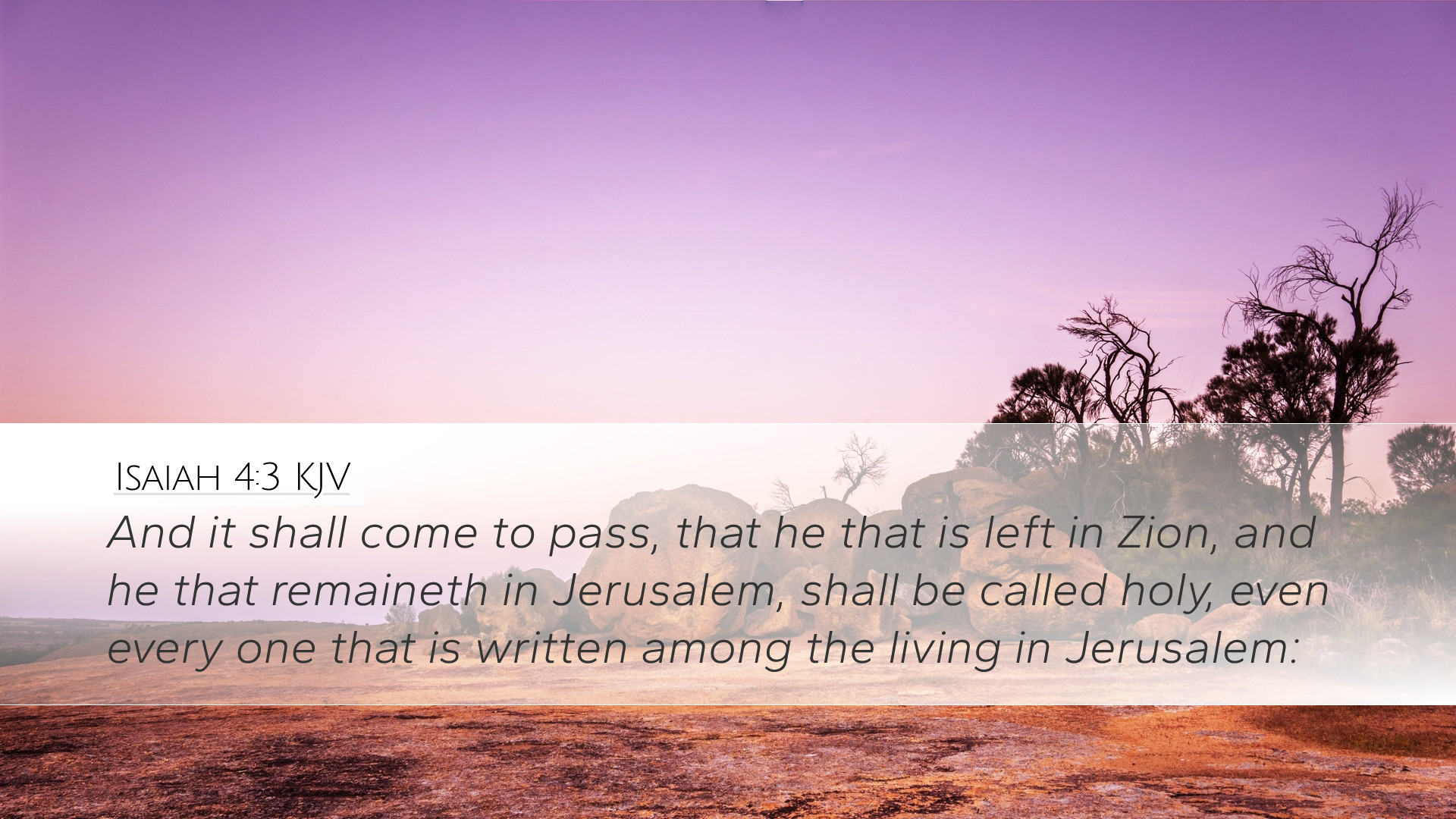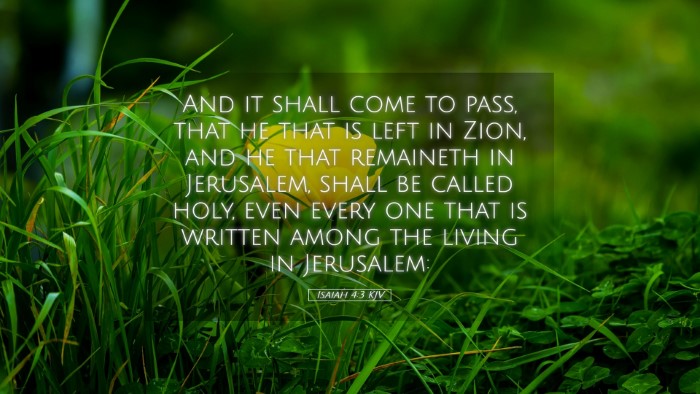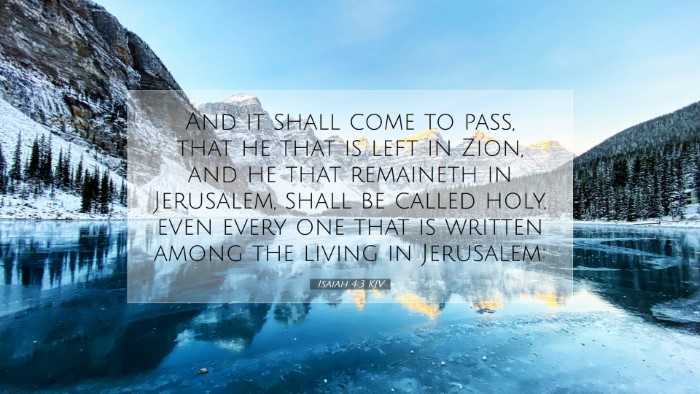Commentary on Isaiah 4:3
Isaiah 4:3 states, "And it shall come to pass, that he that is left in Zion, and he that remaineth in Jerusalem, shall be called holy, even every one that is written among the living in Jerusalem." This verse emerges from a prophetic context where Isaiah addresses the future hope and restoration of God's people, encouraging both leaders and laity to understand the importance of holiness and divine favor.
Contextual Overview
The surrounding verses of Isaiah depict a time of judgment but also highlight God's promise of redemption. In the preceding chapter, Isaiah speaks of the desolation that would befall Jerusalem due to sin. However, God, in His grace, does not abandon His people entirely. This theme of destruction intertwined with hope ushers in a crucial understanding of Isaiah’s message.
- Historical Context: This period is marked by national turmoil and divine judgment upon Israel. The reference to Zion and Jerusalem serves as a focal point for God’s restoration.
- Prophetic Significance: This verse flips the narrative from despair to hope, emphasizing that remnant believers will experience sanctification and divine acknowledgment.
Theological Insights
The theological resonance within Isaiah 4:3 is profound and multifaceted:
- The Remnant: Matthew Henry notes that God's grace is concentrated on those left in Zion, suggesting that even amidst judgment, God maintains a remnant faithful to Him. This theological concept of the remnant underscores God’s sovereignty in preserving His people.
- Holiness: The term "holy" here signifies a state of being set apart. Albert Barnes emphasizes that holiness is not merely a status but is indicative of character and moral conduct, aligning with how God desires his people to be conformed to His image.
- The Book of Life: The reference to those “written among the living” speaks to divine acknowledgment. Adam Clarke elaborates that this signifies those recognized by God as righteous, suggesting the broader idea of God's elect or chosen people throughout history.
Exegesis of Key Terms
Understanding the key terms in Isaiah 4:3 enhances its exegesis:
- "Left in Zion": This phrase illustrates a remnant who has endured the trials and tribulations of a fallen world, a recurring biblical theme found in prophetic literature.
- "Called Holy": The imparting of holiness reflects a transformative work of God in the lives of His people. It is not simply the absence of sin but an active participation in God’s divine nature.
- "Written among the living": This phrase invokes the biblical imagery of a record kept by God, often synonymous with the inheritance of eternal life. It invites readers to reflect upon their standing before God.
Application for Today
The truths encapsulated in Isaiah 4:3 resonate profoundly with contemporary believers:
- God's Faithfulness: Even in periods of difficulty, God is faithful to preserve a people for Himself, encouraging Christians to trust in His promises.
- The Call to Holiness: As believers, we are called to live lives reflecting God's holiness amidst a culture often indifferent to His standard. This necessitates a personal commitment to spiritual maturity.
- Assurance of Salvation: The promise of being "written among the living" instills a deep assurance of God's grace and election—an encouragement for believers to remain steadfast in faith.
Conclusion
Isaiah 4:3 serves as a beacon of hope and a clarion call to holiness for believers both in the ancient context and today. The insights drawn from public domain commentaries illuminate the beauty of God's plan for His people, reinforcing the hope that despite challenges, God always ensures the existence of a faithful remnant.


